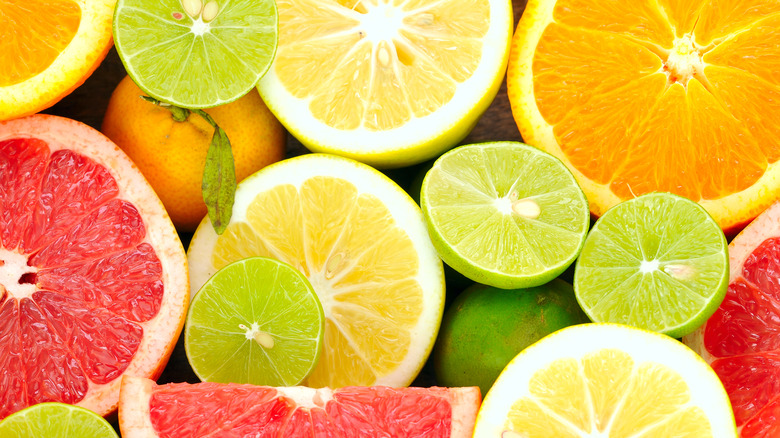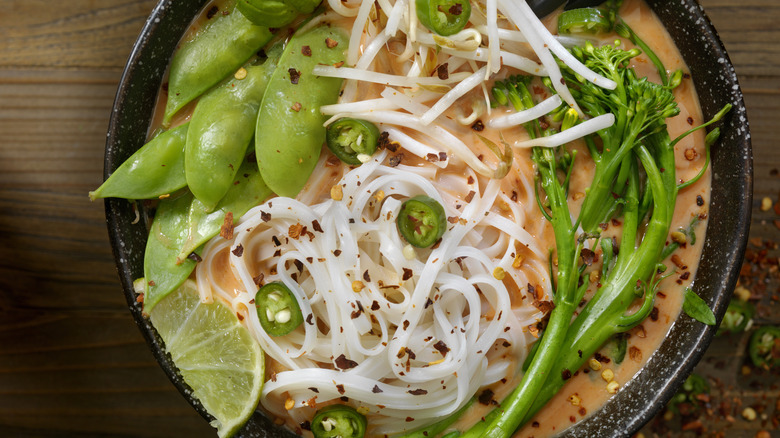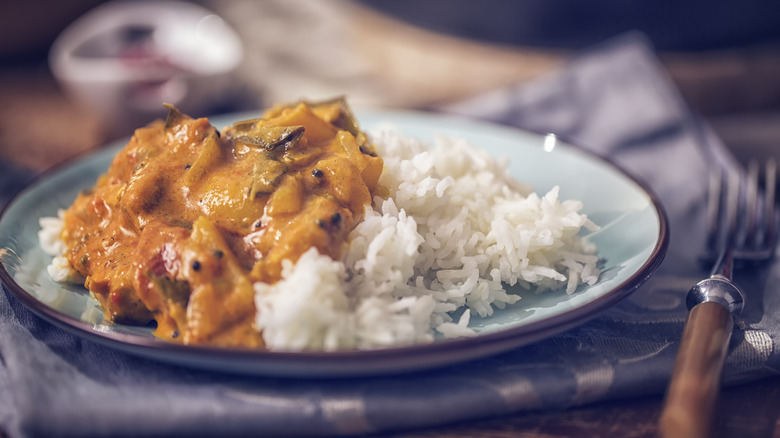Citrus Is The Key Ingredient To Tame Food That's Accidentally Way Too Spicy
It happens to the best of us: Sometimes you're cooking with a little spice and you happen to add too much into the mix. Whether it's an overly-peppery chili or a curry with too fiery of a flame, when your mouth's burning you might feel like you need to do damage control on a dish that's just too hot.
There are plenty of ways to try and curb the heat in food that's gone a bit overboard: adding a touch of dairy helps, or dropping in something a little sweet like honey or sugar will also work to cool a spicy dish down. But one trick that will really balance those heat levels is adding a healthy dose of citrus, such as lemon, lime, or orange juice. High in acid, citrus' strong flavors counteract the intensity of the capsaicin and balance out an insanely spicy dish, making it much more palatable.
Why does citrus cool down heat?
What does citrus juice do to a spicy dish that helps bring the heat level down so effectively? It's all in the acid molecules that make up the juice, which in turn interact with capsaicin molecules in the spicy food, neutralizing them. Capsaicin is what gives spicy ingredients like peppers their heat; this compound is used by the peppers as a deterrent in the wild, aimed at getting animals to avoid eating the fruits (yes, chilis are fruits) and irritating their mouths. However, humans have evolved to tolerate spicy food and even enjoy the pain that peppers provide.
When the citrus and spice combine, the burning feeling is lessened as the acid works its magic. Acidity also stimulates the mouth to salivate, helping to coat the tongue and bring about flavors of refreshment to combat the heat. Much like lemonade on a hot day, a spritz of lemon juice in a flaming curry can help take off the edge.
Other tricks for beating the spicy heat
Citrus isn't the only way to balance out a too-spicy dish. As mentioned earlier, dairy products also work well: cream, milk, yogurt, and butter can all be used to combat spice, whether mixed directly into the food itself or consumed after to soothe the tongue. This is because dairy is full of the protein casein. Casein naturally breaks down capsaicin, diluting it and making it more palatable.
Something else that helps? Bread — or any other sort of starch, for that matter. There's a reason why hot curries are often served with breads and rice; starchy foods can absorb capsaicin, spreading it out and making it so it won't be as concentrated when it hits your taste buds. Eating that hot food on a bed of rice or noodles, or using a pita or hunk of bread to dip and scoop, can really make a difference.


